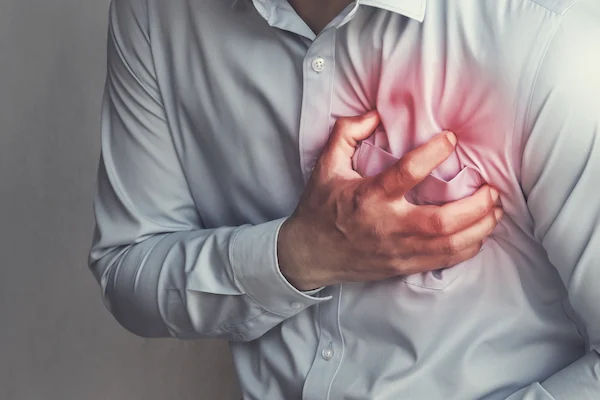10 Signs of Dehydration to Recognize
Learn to recognize the top 10 signs of dehydration, including dry mouth, fatigue, dizziness, and dark urine. Understand the importance of staying hydrated and when to seek medical help.

Written by Dr. Vasanthasree Nair
Reviewed by Dr. Dhankecha Mayank Dineshbhai MBBS
Last updated on 11th Aug, 2025

Introduction
Dehydration occurs when your body loses more fluids than it takes in, disrupting normal bodily functions. It can happen to anyone, especially during hot weather, intense physical activity, or illness. Recognizing the early signs of dehydration is crucial to prevent complications like heatstroke, kidney problems, or even life-threatening conditions.
Here are 10 common signs of dehydration you should watch out for:
1. Extreme Thirst
Thirst is your body’s first signal that it needs more water. If you feel unusually thirsty, it’s a sign that you’re already slightly dehydrated. Don’t ignore this cue; drink water immediately.
2. Dark Yellow or Strong-Smelling Urine
Healthy urine is pale yellow. If your urine is dark yellow, amber-colored, or has a strong odor, it means your body is conserving water due to dehydration.
3. Dry Mouth and Bad Breath
Saliva production decreases when you’re dehydrated, leading to a dry, sticky mouth. This can also cause bad breath because bacteria thrive in a dry oral environment.
4. Fatigue and Dizziness
Dehydration reduces blood volume, making your heart work harder to pump oxygen and nutrients. This can leave you feeling unusually tired, dizzy, or lightheaded, especially when standing up quickly.
5. Headaches
Lack of fluids can cause the brain to temporarily shrink, pulling away from the skull and triggering a dehydration headache. If you have a headache with no other obvious cause, try drinking water first.
6. Dry or Flushed Skin
Dehydrated skin loses elasticity. If you pinch the skin on the back of your hand and it doesn’t bounce back quickly, you may be dehydrated. Flushed (red) skin can also indicate heat stress from dehydration.
7. Muscle Cramps
Electrolyte imbalances due to dehydration can lead to painful muscle cramps, especially during exercise. Sodium and potassium loss through sweat worsens this condition.
8. Rapid Heartbeat or Breathing
When dehydrated, your blood becomes thicker, forcing your heart to pump faster. You may notice a rapid heartbeat or shallow breathing, which can be alarming if severe.
9. Confusion or Irritability
Severe dehydration affects brain function, leading to confusion, difficulty concentrating, or sudden mood changes. In extreme cases, it may cause delirium.
10. Reduced Urination or No Urine Output
If you’re urinating less than usual or not at all for several hours, your body is severely dehydrated. This is a medical emergency, especially in children and older adults.
Health topic carousel:
Doctor's speciality: General Physician
Text: Consult a Top General Physician for the best advice
Who Is at Higher Risk?
Some people are more prone to dehydration, including:
Infants & young children (they lose fluids quickly)
Elderly adults (reduced thirst sensation)
Athletes & outdoor workers (excessive sweating)
People with chronic illnesses (diabetes, kidney disease)
Those with vomiting or diarrhea (rapid fluid loss)
How to Prevent and Treat Dehydration
Quick tips to prevent and treat dehydration:
1. Drink Enough Water Daily
Aim for 8-10 glasses (2-2.5 liters) per day.
Increase intake in hot weather or during exercise.
2. Eat Hydrating Foods
Fruits like watermelon, oranges, and cucumbers.
Soups, coconut water, and herbal teas also help.
3. Avoid Excessive Alcohol & Caffeine
These act as diuretics, increasing fluid loss.
4. Replenish Electrolytes
After heavy sweating, drink ORS (Oral Rehydration Solution) or sports drinks (in moderation).
5. Monitor Urine Color
Pale yellow = well-hydrated.
Dark yellow = drink more water.
6. Seek Medical Help If:
You can’t keep fluids down.
You experience extreme dizziness, confusion, or no urine for 12+ hours.
When to Consult a Doctor?
It’s time to consult a doctor if dehydration symptoms persist despite drinking fluids, or if you experience:
Severe diarrhea/vomiting
Sunken eyes
Low blood pressure
Fainting
Final Thoughts
Dehydration is preventable with simple habits like drinking enough water and recognizing early signs. Listen to your body; thirst, fatigue, and dark urine are clear warnings. Stay hydrated, stay healthy!
Health topic carousel:
Doctor's speciality: General Physician
Text: Consult a Top General Physician for the best advice



.webp)
